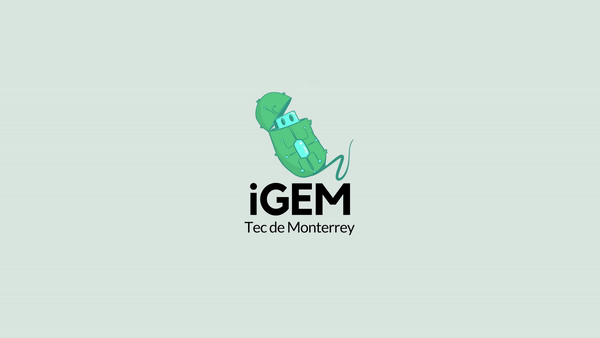EstebanDLPT (Talk | contribs) m |
EstebanDLPT (Talk | contribs) m |
||
| Line 7: | Line 7: | ||
background-size: cover; | background-size: cover; | ||
background-repeat: no-repeat; | background-repeat: no-repeat; | ||
| + | background-position-x: center; | ||
| + | background-position-y: center; | ||
} | } | ||
.cd-vertical-nav li:first-of-type a::after { | .cd-vertical-nav li:first-of-type a::after { | ||
Revision as of 17:42, 17 October 2018

Biosafety
Biosafety and biosecurity are two components of extreme importance in the development of every project, E-coding is not the exception. It was a priority for us to have biosecurity regulations, safety considerations and standards for the laboratories practices to be successful and to have a quality control in our results.
There has been an issue with the biosafety education in Mexico and we believe that it is a problem that should be solved. We decided to take action and with the collaboration of our institution, Tecnológico de Monterrey and the Administration of Undergraduate Laboratories of the Bioengineering Department, we implemented a system of workplace administration named 5S.
5S Module
This system was applied in our university’s educational spaces with the goal of not only enhancing the appearance and experience of users in the labs but also, most importantly, to optimize the usage of materials and to mend the biosecurity.
How does it work?
“5S” works under 5 main guidelines that help achieve our goal: efficiency and safety in the lab. All students, faculty members and other laboratory users are both encouraged and expected to follow these guidelines and come up with new ideas to improve the system.
The main components of 5S are:
- Seiri: Classifying
- Seiton: Organizing
- Seiso: Cleaning
- SeiketsuStandardizing
- Shitsuke: Discipline

Seiton and Seiso in the Lab

Seiri of our material
During the time this system has been implemented in our laboratories, we have noticed great results. There has been an increase in productivity and efficiency, there is more space available for everyone, chores have been better distributed, there has been a lower number of accidents and cleaning time. This system has proven to be successful and has promoted team work in the lab.
Having safe, clean and organized laboratories only encourage us to work harder and feel proud about our work space.
Our Lab
Team's Safety
To ensure that we were being safe in the lab we verified that, as soon as someone entered the lab and started conducting experiments, safety goggles, lab coats, closed-toes shoes and latex gloves had to be worn.
Besides, before we started the wet lab, we had a team session where we received a lab training session from our mentors and advisors about the rules that had to be followed in the lab and a training in the biosafety indications we had to follow.
Also, we tried that, when conducting experiments, a supervisor or advisor would be present to lead us, to solve any doubts or problematics we were facing, to assess us and to make sure we were following the safety protocols.
Some pictures of our lab´s safety equipment:

Emergency eye washer

Whole emergency shower and eye wahser
Lab Safety
As a team, we recognize the importance of following safety protocols in the lab to avoid accidents and achieve a better working strategy.
With the objective of making these safety protocols and guidelines available to every user of the lab, not only to our team, we took responsibility and went out to recollect them and upload them to a single online folder making them easy to access through a QR code. These codes will be available throughout the laboratory we work at (as stickers) that can be scanned with any phone.
This way, if any lab user has a question regarding lab safety of just wants to share this information with another person, the only thing they have to do is scan the codes with a mobile device.
We hope this system can be implemented in the future in other laboratories and universities, as it is easy to use and very effective.

QR Code for the safety protocols and guidelines for the lab
Project Safety
Risk assessment
In our project, all of the parts and bacteria strains that we used had no pathogenicity. According to the whitelist, we had no need to Check-in and made sure and adjusted our project so that it was all allowed in iGEM.


